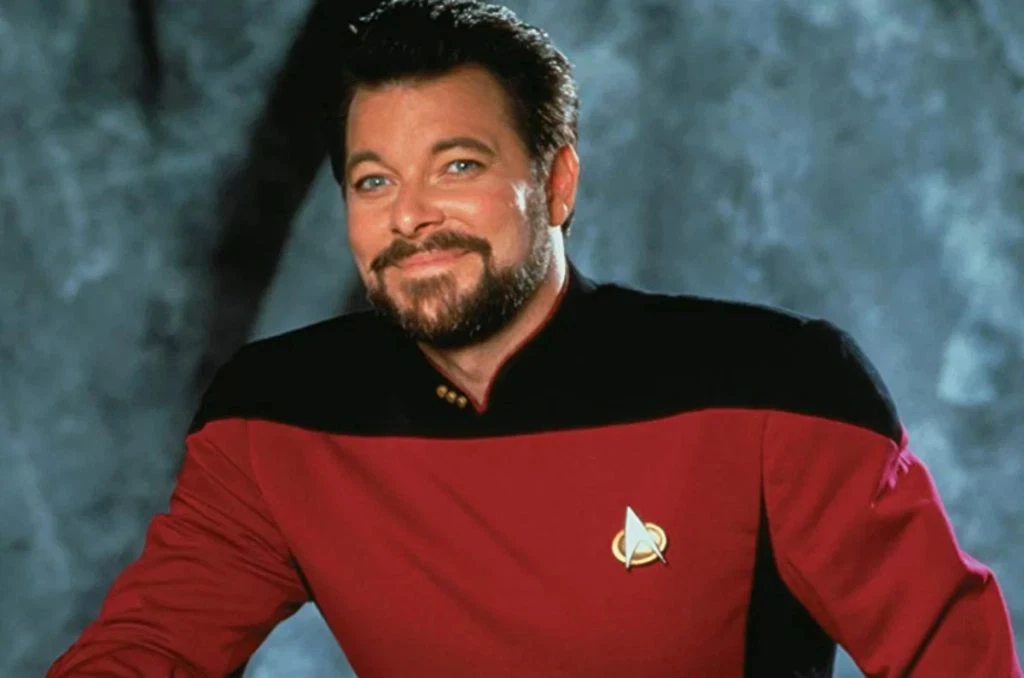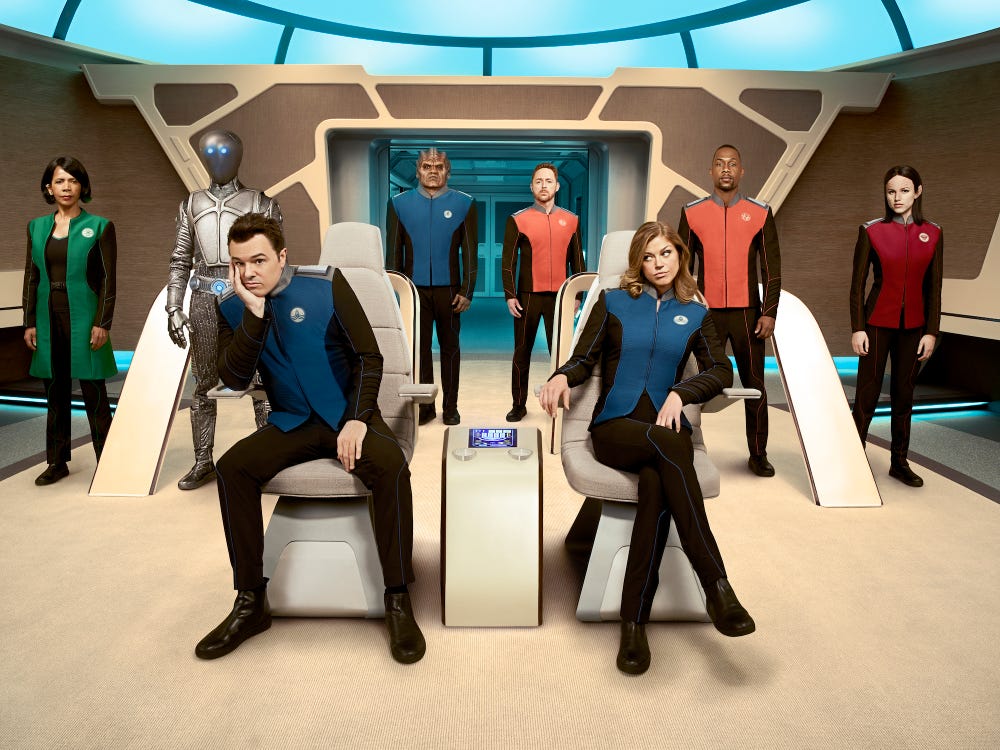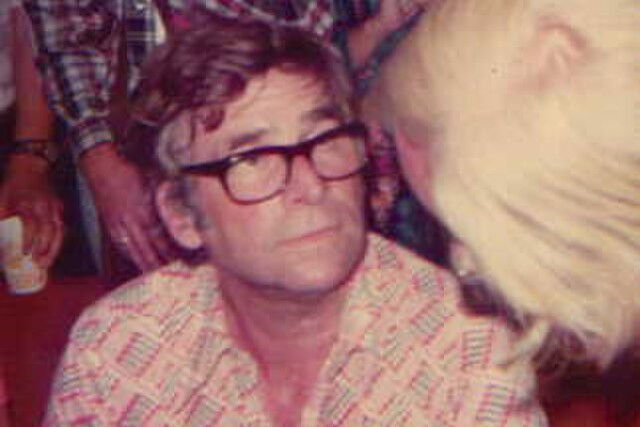
From becoming the youngest showrunner in television history with The Family Guy to being berated by the creators of The Simpsons and especially South Park, Seth MacFarlane has had a complicated reputation in Hollywood. This isn’t to say his entire career has been confined to The Family Guy cutaway gags, as in recent years, the animator has branched out with shows like The Orville.
Speaking of his sci-fi venture, Star Trek star Jonathan Frakes even deemed McFarlane’s creation on brand with Roddenberry’s iconic saga, as both of them leaned toward similar goals.
Jonathan Frakes spoke highly of Seth MacFarlane’s love letter to Star Trek

In contrast to Star Wars, which inclined more towards fantasy than sci-fi, Gene Roddenberry’s creation, despite being futuristic, was rooted in reality with its exploration of themes that hit close to home. Whether it’s sexism, immigration problems, or human rights, the show dealt with social issues that still remain relevant in society, adding to its timeless nature in pop culture.
Interestingly, for Jonathan Frakes, who went on to helm his own Star Trek feature, Seth McFarlane‘s The Orville is in the same vein as Roddenberry’s creation when it comes to “dealing with cultural and ethical problems”.

He said (via Inside Magazine):
Seth is one of the industry’s renaissance men. He was always a huge ‘Next Generation’ fan, and wanted to be the captain of his own starship since he was nine years old. Fast-forward through his career, and he made hundreds of millions from his success as an animator on shows like ‘Family Guy,’ but he always yearned to do a show about a star ship. Knowing Seth, I thought it (‘The Orville’) would be sillier and less serious — but it was very much Roddenberry, dealing with cultural and ethical problems.
It’s easy to see the parallels between them, and considering Frakes even helmed two episodes of the show, it’s undoubtedly one of the most slept-on shows in McFarlane’s filmography, a love letter to the OG, to be precise.
Star Trek was always about celebrating humankind
One of the core reasons why Gene Roddenberry rooted his sci-fi creation in reality was his hope for humankind. Instead of being pessimistic about humankind’s potential, the filmmaker embraced our species’ abilities and feats, and to him, Star Trek was about tomorrow, adding “[Star Trek] speaks to some basic human needs.”

He explained (via Big Think):
Star Trek speaks to some basic human needs: that there is a tomorrow — it’s not all going to be over with a big flash and a bomb; that the human race is improving; that we have things to be proud of as humans. No, ancient astronauts did not build the pyramids — human beings built them, because they’re clever and they work hard. And Star Trek is about those things.
It’s not a surprise that astrophysicist Neil deGrasse Tyson heavily leans toward Star Trek, and hopefully, Seth McFarlane can continue building on Roddenberry’s recipe with more potential seasons of The Orville.
The Orville is available to stream on Disney+(US).
This post belongs to FandomWire and first appeared on FandomWire